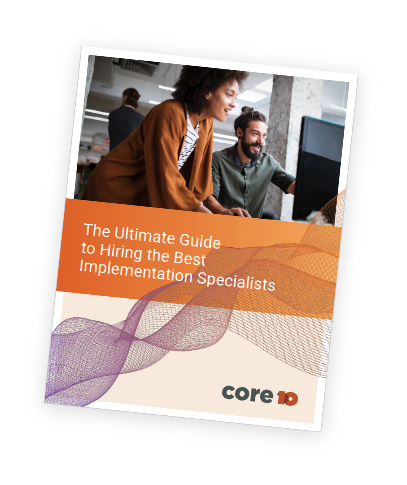Whenever a business needs outsourced fintech software development, more often than not this need is at the center of additional points of pain. These pain points can include a skill set gap, a backlog of work, an overburdened staff, inconsistent processes, and competing priorities.
Very similar to outsourcing API development, the challenge with fintech software development is to find a provider who can step into this perfect storm, quickly assess the environment, and add value instead of adding another pain point.
This is why a partnership mindset is preferable to a vendor mindset.
How can you spot the difference?
A vendor mindset focuses on price alone
Not that price isn’t vitally important – because it absolutely is – but if the conversation doesn’t turn to where the provider adds value, this might be a signal that they are geared more toward a vendor relationship than a partner relationship.
A partner mindset understands that enhancing quality and expanding core business are key considerations for many businesses. Fintech software developers who want to win your business will present themselves as partners who can help you achieve more than just cost targets. In fact, a fintech software developer partner can help you find funding solutions for your development projects.
A vendor needs daily guidance or assistance
Having a point of contact for routine communication is critical. But requiring too much process or administrative support draws from your in-house resources. A vendor who doesn’t understand your industry’s best practices or is inattentive to your operating style runs the risk of adding burden to your team rather than relieving it.
On the other hand, a fintech software development partner is able to quickly assess your processes, communication, and working style. They are self-sufficient with an eye toward optimizing your work day.
A good vendor shows up, puts their head down and completes tasks. A partner keeps their eyes open and brings a plan to address business-critical issues when they spot them. They recognize a bottleneck when they see it, understand whether or not it threatens delivery, and collaborate to ease any burdens.
Core10 has done this by maintaining a clear communication channel between the in-house team and theirs, and by flexing team members up and down to address the client’s needs as they fluctuate.
To be clear, partnership isn’t about seeking opportunities to gain more work or charge more fees. What sets the partnership mindset apart is about leaning in to solve problems for the client when they need it most.
A vendor may require additional technical training
Adding more contract resources to a project doesn’t always get it done faster, especially if the developers aren’t up to speed on fintech and don’t understand the financial industry. If a vendor insists on additional technical training before taking a project, they may not have the experience needed to hit your milestones.
A partner has extensive fintech training and experience specifically in the financial industry. They know core providers like Jack Henry, Fiserv, and FIS inside and out, and they know the key industry terms and acronyms.
Partners understand the business goals that industry insiders share along with the struggles and challenges they face. This gives them the insight to spot potential ways to add efficiencies and to troubleshoot. They’re well versed in security best practices and have protocols in place to prevent Personal Identification Information or other sensitive data breaches. True partners always look for ways to avoid possible snags down the line.
An outsourced fintech software development partner has both the micro-level skill set and the macro-level vision to add value to your business.
When you’re evaluating the right provider for you, take time to look at the developer’s project portfolio. Speak to references and ask direct questions about their work – were they collaborative? Did they add value? Did they hit milestones? Is their work scalable?
We’re so passionate about helping the financial services community find the right fintech software developer fit, we’ve developed an eBook about it. If you’d like a closer look at what drives a successful outsourcing relationship, download this free resource here.
If you have questions or would like to talk about an upcoming project, reach out to us today.






